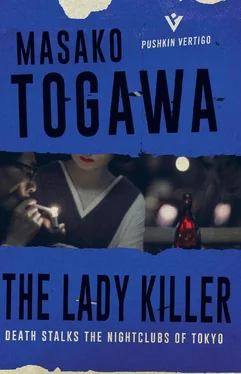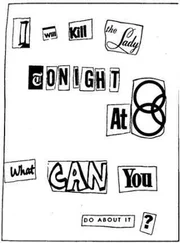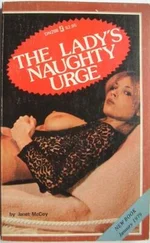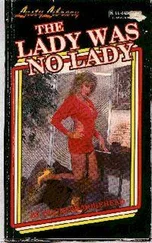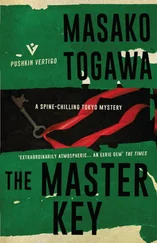1
A week passed before the old man sent for Shinji again.
“I’ve got another job for you,” he said. “Sit down and take a look at this.” He passed over three typewritten pages stapled together. “It’s the report I got back from the detective agency today. You will see that it lists the names, addresses, and workplaces of six people, together with an outline of their daily schedules.”
Shinji looked at the papers. “Yes, I’ve got it,” he finally announced. “But what do you want me to do?”
“Well, the blood type of everyone on that list is AB Rh-negative.”
“The same type as Ichiro Honda, in fact?”
“Correct. And what percentage of the population has that type, do you think?”
Shinji cast his mind back to his studies in the library. The book had said that fifteen percent of Caucasians had Rh-negative blood, but that in the case of Orientals, the ratio fell to only half a percent.
“One in two hundred, I seem to remember.”
The old man smiled. “No, much less. Certainly one in two hundred exhibit the rhesus factor, but AB Rh-negative narrows it down even further. Only ten percent of Japanese have AB blood. So the answer to my question is one in two thousand!”
“So how many does that make for the whole of Tokyo?”
“Well, taking the population of Tokyo at ten million, that makes five thousand.”
“From amongst whom you have listed six?”
“Ah, but five thousand is a sort of meaningless statistic. How many of those five thousand know that their blood is AB Rh-negative? In wartime, people tend to know their blood type, but not in peace. To be honest, I don’t even know my type.” He laughed mischievously, rolling the cigar around in his mouth.
Shinji, on the other hand, knew that his blood was type AB. At primary school he had always worn a tag with his blood type on it. This was one of his small remaining memories of the war. But he had never had cause to check it since. And, come to think of it, Rhesus types were discovered during the war, when transfusions became common. Nowadays, if people have Rhesus-factor blood, it is a matter of importance to them, but in his schooldays it had been unknown. Perhaps he, too, was Rh-negative.
If that was so, and if he had no alibi for the times of the murders, then he, too, could be a suspect.
“Yes. Even amongst people who know where they fall in the A, B, and O system, there are very few who know if they are Rhesus or not,” said the old man.
“So how do people find out?”
“There are two ways.”
“Well, I suppose if you have a blood transfusion, you know.”
“Yes. And what’s the other way?”
Shinji was stumped. The old man laughed triumphantly and explained.
“People who give their blood for transfusion, of course!”
“You mean donors? And people who sell their blood?”
“Yes. And I’m not interested in fresh transfusions, only in blood that is stored.”
“You mean in blood banks?”
“Yes. And, you know, you don’t deposit your blood and draw it back when you need it in a blood bank. Most, if not all, blood-bank blood is sold. And the banks keep details of the people who sell to them.”
“Ah! So you mean that you can get lists of AB Rh-negative people from a blood bank?”
“Yes, and that is what I have had done—hence the list in your hand. Inquiries were made at every blood bank in Tokyo. There were twenty-seven Rh-negative people on their books, of whom six were also AB. Statistically rather high, but there you are.”
The old man’s plan began faintly to dawn on Shinji. It seemed a long shot at best, a dangerous gamble at worst.
“I know it sounds funny, but when we discuss it in this way my imagination forces me to behave as if I were the criminal,” the old man continued. “What I mean is that I try and imagine I am the criminal, get inside his mind. If I wanted to frame Ichiro Honda by leaving his blood group at the scene of the crime, how would I set about it? Well, of course, I’d go to a blood bank to find people with the type I was after. So what do you think I did next? I caused inquiries to be made at all the blood banks to see if anyone had during the last year made inquiries about Rh-negative donors. And, you know, there was one.” He sounded almost triumphant.
He took another document out of the folder in front of him. Shinji reflected on the careful attention to detail that had made Hatanaka such a good criminal lawyer. The old man lit a cigar and went on.
“In the beginning of last September, I learned, there was an inquiry about AB Rh-negative blood made to several banks. The cause given was that it was needed for a newborn baby. Babies born to mothers with Rh-negative blood have to have all their blood changed to Rh-negative, or they die. The condition is called ‘Hemolytic disease of the newborn.’
“Well, I next asked for which hospital the request was made. It was a hospital in Toshima ward. So I rang them, and, would you believe it, they have not had a single such case in the last twelve months!”
“So the call was a fake.”
“Absolutely correct.”
The old man had finally picked up the traces of the person who had entrapped Ichiro Honda. Now all he had to do was to follow the trail. Shinji stiffened with excitement.
“What was the person who made the inquiry like?” he asked.
“It was always a telephone call. But they say that the voice sounded forced.”
“A man?”
“Most probably, judging from what was said. However, we must not overlook the possibility of a woman disguising her voice to sound like a man. I think we should keep an open mind.”
“Well, at least they left us with our first clue. So this list comprises the names that the inquirer was given?”
“Yes. But you will observe that one of them is a woman aged forty-two. A day laborer from the flophouses. I gather that nowadays you can tell gender from blood, so let’s strike her out. So just check out these five; I have a hunch that you will find that one of them sold his blood to our mysterious stranger.”
So far, the old man’s reasoning seemed to hold together, Shinji thought. But if his theory was true, and there existed a person who had trapped Honda, how on earth had they known his blood type?
“It seems to me,” he said, “that as Ichiro Honda knew that he was AB Rh-negative since he was at college, then only his close friends and relatives would know.”
“No. Anyone could have found out.” The old man produced a faded newspaper clipping from his file with the air of a child removing his secret playthings from a box. “This dates back ten years. I got it from the archives of a newspaper company. It relates how a hemolytically diseased baby was saved by a transfusion in a Fukuoka hospital. And of course you can guess who the donor was. Ichiro Honda.” The old man gazed at him in triumph.
“You see, it was one of the very first Rh-negative transfusions in Japan, and it was big news at the time. So it made the front page—complete with a photo of Honda.” He passed the clipping over, and Shinji looked at a photo of a much younger Honda. He cast his eye over the headlines and caption.
“A.M.U. Biology Lab saves baby,” he read. “All students’ blood classified in American manner. A triumph for science. Student flies to Fukuoka in military plane and gives blood.”
The old man chewed his cigar. “There’s something else which is interesting in there,” he observed. “In those days, the term ‘hemolytic disease of the newborn’ was not used, so they referred to it by the old medical name—‘Rhesus incompatibility.’ And the person who made the phone call used that expression and not the term now used. That’s one reason why the phone calls were remembered at the hospitals. And the phrase in the article is ‘Rhesus incompatibility.’ So it’s pretty obvious, isn’t it?”
Читать дальше
